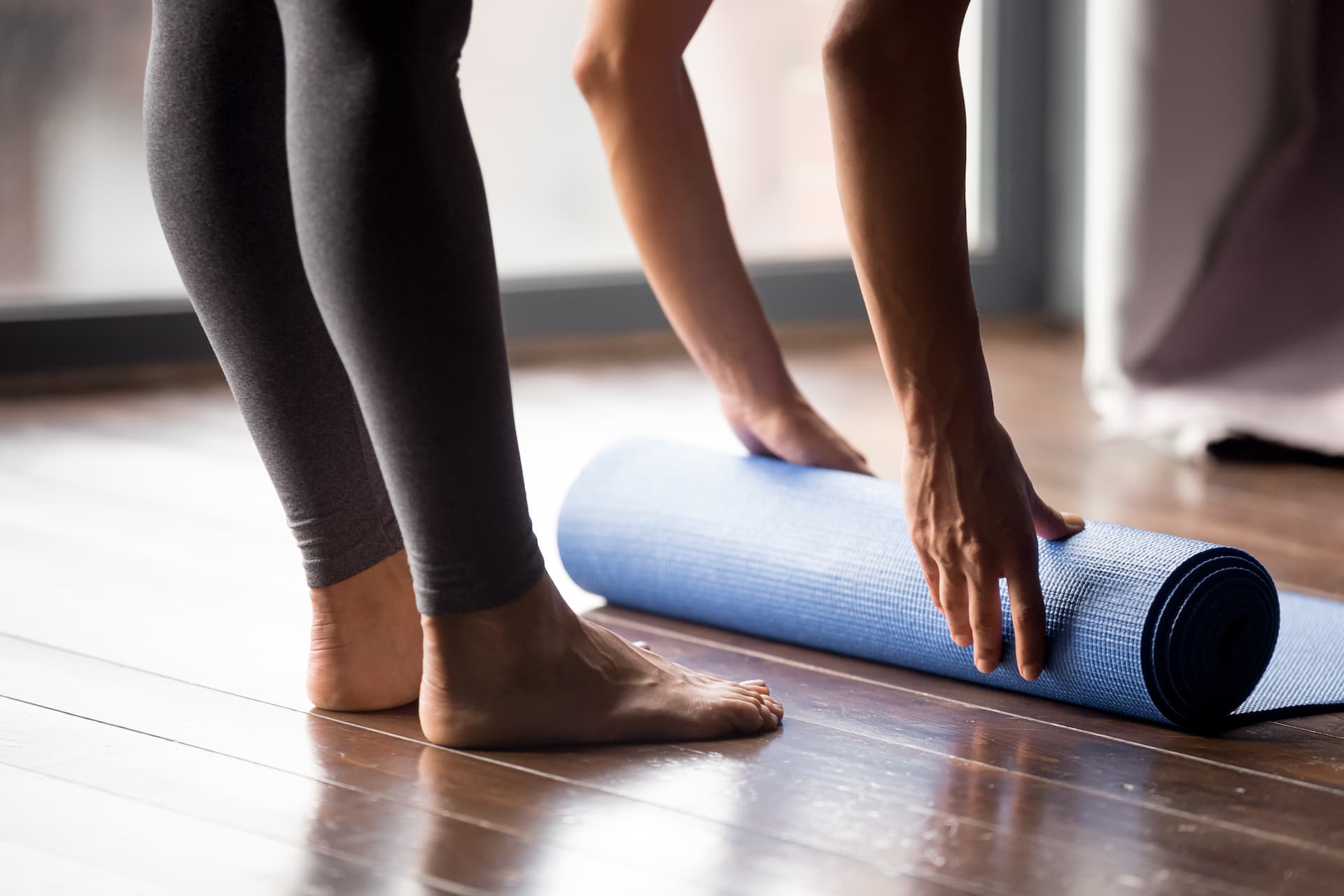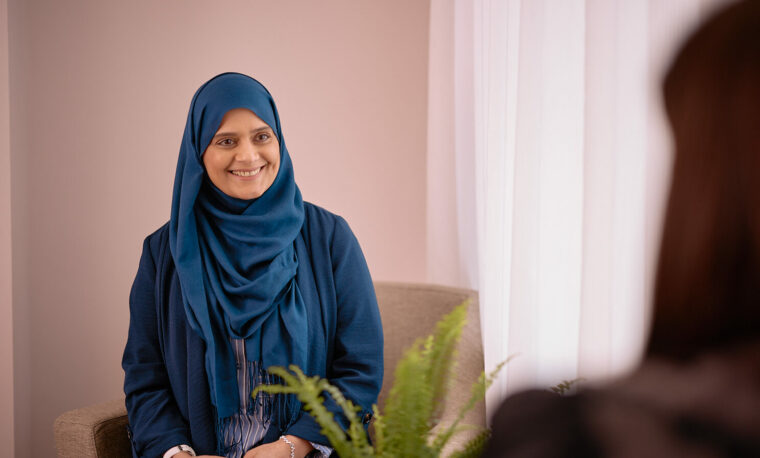Well-being therapy services
We believe that a holistic approach to mental health through combining physical, emotional and spiritual well-being is vital to long-term mental health. As a result, we have developed a unique physical health and well-being programme to support our patients’ overall health and well-being, and, if clinically appropriate, to complement our other therapy treatments.
Well-being therapies are proven to promote relaxation and stress relief, re-connect the mind and body, release muscular tension often associated with stress and anxiety as well as boost the immune system.
The following services are available to inpatients at Nightingale Hospital.
Gymnasium
Exercise is an integral part of overall mental and physical health. Nightingale Hospital offers a gymnasium for patient use when an individual is not participating in group therapy programmes.
A personal trainer employed by the hospital will offer patients an initial assessment and tailor an exercise programme for them based on their fitness level and goals. This is a free ‘drop-in’ service that occurs Wednesday each week. Additional sessions including 1-1 sessions can be purchased at an additional cost.
All patients must have consent from their consultant psychiatrist before using the gym. For instance, as part of a specialist eating disorder treatment plan, patients may not be permitted to use exercise facilities.
Diet and nutrition
The nutritionist programme explores eating patterns and identifies areas that require attention to balanced nutrition. The nutritionist programme will improve physiological and psychological health and well-being. Nightingale Hospital nutritionist programme, for inpatient, day patient and outpatient, includes an assessment of current patterns and evidence-based advice on what changes to make.
Massage and bodywork therapies
Nightingale Hospital’s resident massage therapist offers various therapies.
These can help promote physical and mental health by:
- Facilitating relaxation and stress relief
- Re-connecting the mind and body
- Releasing muscular tension often associated with stress and anxiety
- Potential to boost the body’s immune system
- Helps to manage symptoms of withdrawal
Available treatments include therapeutic and relaxation massage, deep tissue/remedial massage, lymphatic drainage massage, Seated Indian head/acupressure massage, reflexology, facial rejuvenation massage and Jurlique® organic skincare facial.
30, 60, 90 or 120-minute treatments are available, and prices start from £50.
Appointments available
Tuesday and Thursday; 4:15 pm – 9:00 pm
Saturday and Sunday; 12:00 pm – 4:30 pm
Please note that massage therapy is not included in any inpatient treatment programme, and neither are they covered by private medical insurance. Treatments must be paid for in advance by cash or card.
Fitness and well-being group
The ‘fitness and well-being group’ aims at increasing insight into how fitness plays an important role in mental health and well-being. The group is divided into two parts, focusing both on an educational and a practical approach to fitness.
The group is led by the hospital’s employed personal trainer, who has experience (how long) in dealing with patients within the hospital.
The aim of the educational part of the group is to understand how fitness can be a positive tool for overall well-being. In the practical section, the group will focus on a varied application of physical movement. Sometimes this may include mobilisation and stretching to alleviate muscle tightness, and overall stiffness and promote relaxation. Alternatively, sometimes the group will include a light but stimulating workout, aimed at promoting a release of endorphins.
This group is currently only available to general psychiatrists and addiction inpatients.
Yoga
Yoga combines physical and mental practices that originated more than 3,000 years ago. It is designed to be a restorative and energising exercise.
Yoga can alleviate mental health issues such as loss of memory and mood disorders, depression, anxiety, sleep problems, panic attacks, addiction, and phobias. The breathing and relaxation methods are calming and very effective in relieving stress and emotional distress.
Nightingale Hospital includes yoga classes in inpatient and day-patient therapy programmes.
Tai-chi
Tai-Chi was originally developed as a martial art in the 13th century in China, and centres around deep breathing, relaxation and flowing movements. It is now practised around the world as a well-being exercise with many health benefits.
Tai Chi sessions take place in the inpatient group therapy programme to treat general mental health problems, including addictions.
Sleep and energy therapy
Sleep is very important for good physical and mental health. Sleep therapy helps with identifying problems that may be unaddressed that are contributing to your lack of sleep, as it can commonly be a symptom of other mental health problems. Addressing these issues can help the stress that is keeping you awake. The resulting disturbance in sleep can then develop into its’ own problem with accompanying poor concentration and mood, contributing to a vicious cycle.
Related conditions
- Anorexia nervosa
- Anger problems
- Anxiety
- Bereavement
- Personality disorders
- Behavioural addictions
- Binge eating disorder (BED)
- Bipolar disorder
- Bulimia nervosa
- Drug addiction
- Dual diagnosis
- Gambling addiction
- Interpersonal difficulties
- Mood disorders
- Obsessive-compulsive disorder (OCD)
- Other Specified Feeding or Eating Disorders (OSFED)
- Panic attacks
- Postnatal depression
- Phobias
- Post-traumatic stress disorder (PTSD)
- Psychosis
- Self-harm
- Schizophrenia
- Sleep disorders
- Stress
- Suicidal thoughts
- Technology addiction








